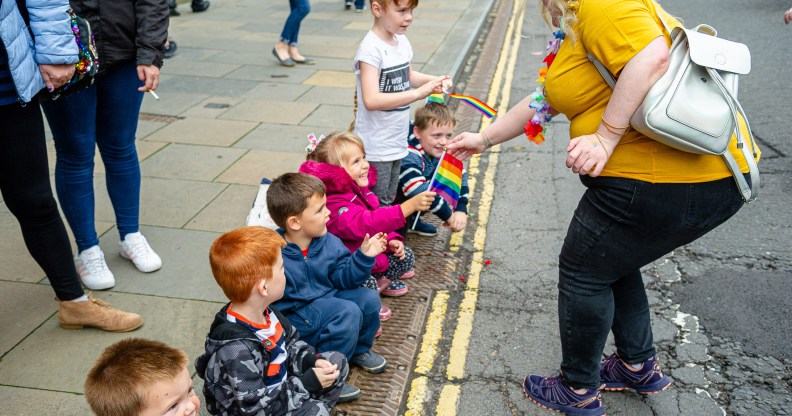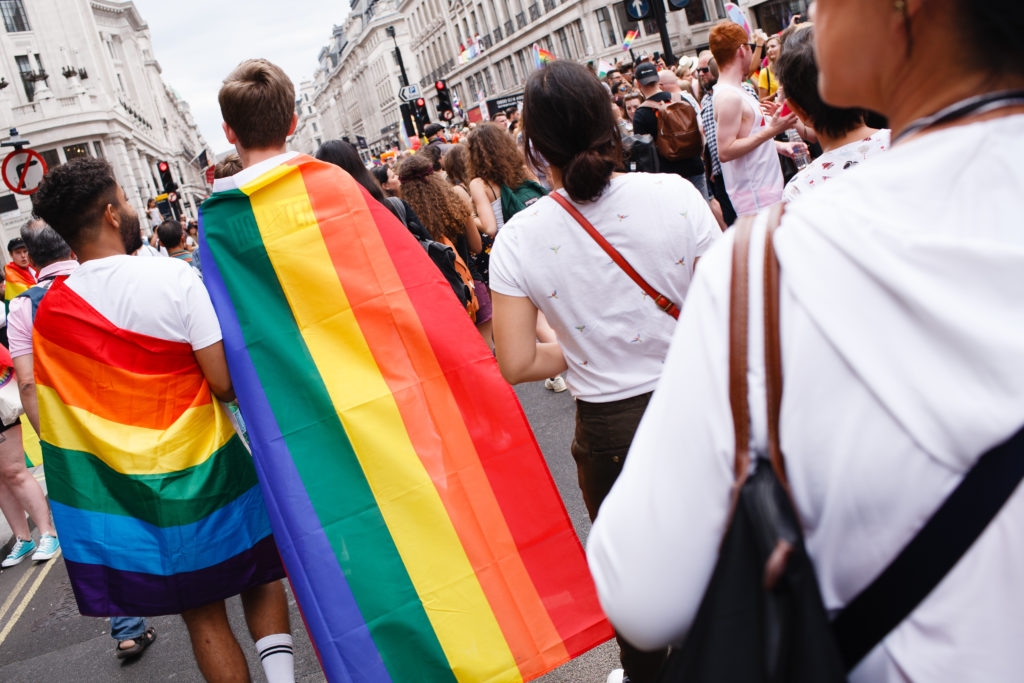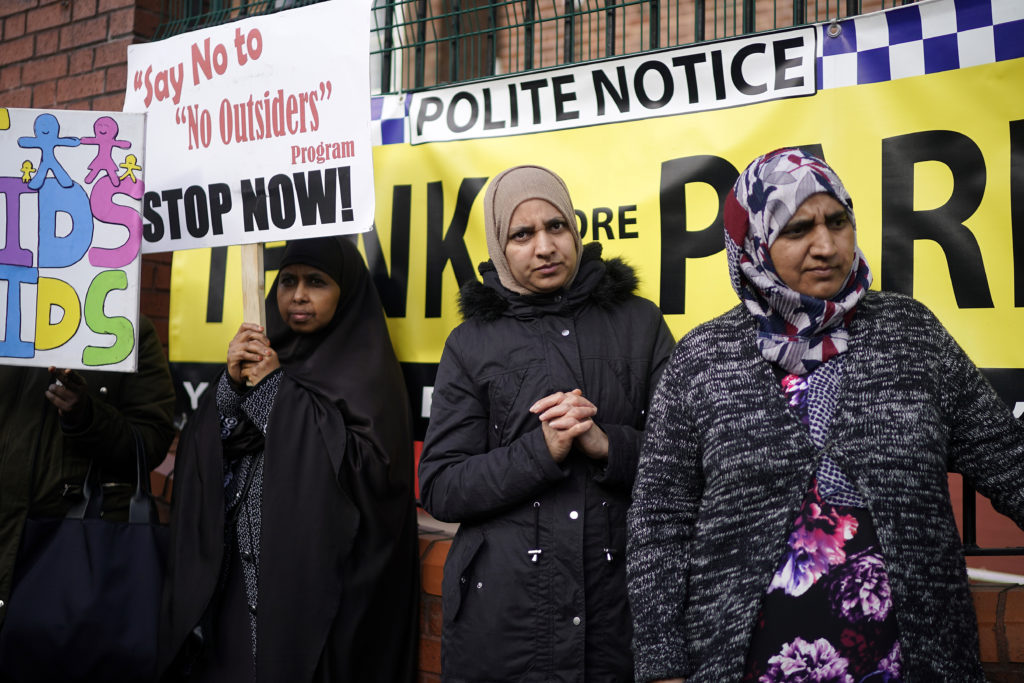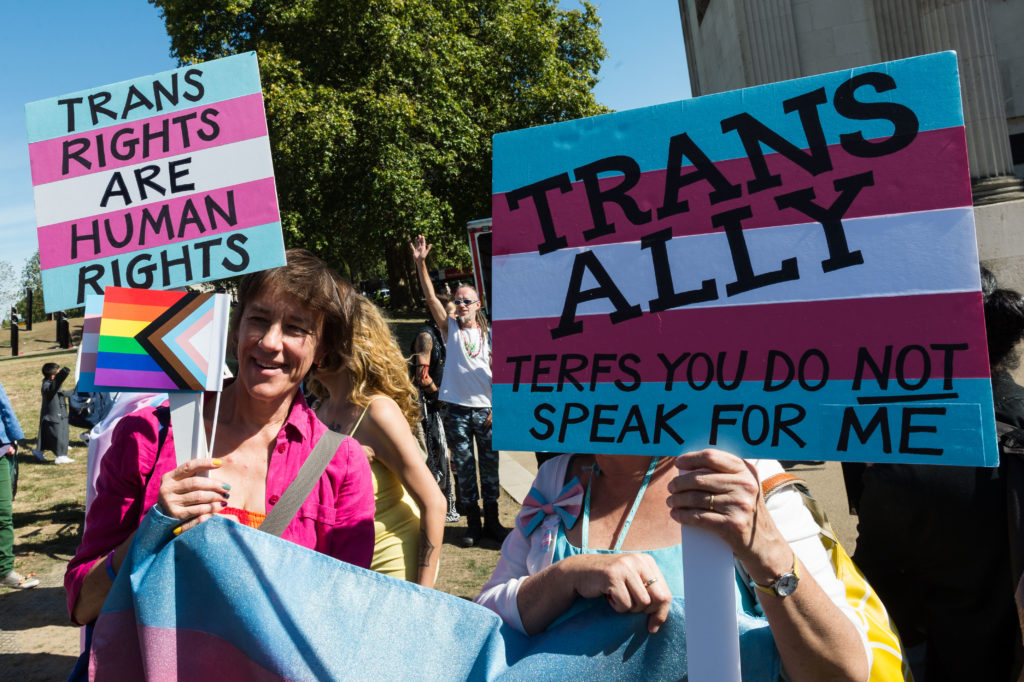More than a quarter of UK adults would feel ashamed to have an LGBT+ child, shocking study says

A participant in the LGBT+ march hands a row of children pride flags at Perthshire Pride, Scotland. (Stewart Kirby/SOPA Images/LightRocket via Getty Images)
Around one in four adults in the UK would not feel proud to have an LGBT+ child, a shocking new study has revealed.
Adults across the UK were asked how they would respond to their child coming out as well as several other scenarios, from pronouns to education.
But the results stir a worrying picture of the nation, where 26 per cent of the 2,109 surveyed would not feel proud to have an LGBT+ child, an online poll by YouGov, on behalf of the queer youth homelessness charity akt, found.
The akt study also revealed that more than one in ten of adults would not want their child to bring home a same-sex partner, whereas one in five would worry about how family members would respond to them having an LGBT+ child.
Charity leaders stressed that these numbers “barely capture the heartbreaking realities” of the young people they support every day, while parent allies dubbed the results “saddening”.
Just less than half of UK adults would feel ‘proud’ to have a queer child.
Overall, researchers revealed that for an alarming number of UK adults, LGBT+ topics are a thorny issue for them.
Less than half (46 per cent) of those surveyed agree with the statement that they would feel proud to have a child who had come out.
And around 11 per cent of people would be uncomfortable living at home with an LGBT+ child.
Previous research from akt revealed that nearly a quarter of homeless young people identify as LGBT+.

Pride in London, 2019. (David Cliff/SOPA Images/LightRocket via Getty Images)
Hostile home environments and familial rejection had been a major factor in forcing 77 per cent of them to flee their homes.
One “proud” parent of a gay child, who wished to remain anonymous, told PinkNews that she was “saddened and disappointed” by the results of the study.
“It’s heartbreaking knowing that there’s a group of children out there that haven’t received the love and support they deserve.”
She called on LGBT-inclusive education in schools “so we can move forward to a more caring, accepting society for future generations to come”.
‘The act of coming out can result in parental rejection and abuse for many young people’, charity leader says.
These figures yawn the divide that young people face between “having a roof over their head” and being who they are, Tim Sigsworth, CEO of akt, said.
“People often talk about the ‘unconditional love’ that parents have for their children,” he continued.
“However, we know first-hand that in many cases [that] the act of coming out can result in parental rejection and abuse for many young people.”

Parents, children and protesters demonstrate against the ‘No Outsiders’ programme, which teaches children about LGBT rights, at Parkfield Community School on March 21, 2019 in Birmingham, England. (Christopher Furlong/Getty)
After the notion of teaching about the existence of LGBT+ people sparked protests in primary schools – objectors picketing and pulling their children from schools – these figures capture the undercurrent of conflict campaigners are facing.
Similar backlash bubbled when lawmakers pushed ahead with introducing compulsory queer-inclusive guidance on sex and relationships education.
When asked about this, just 59 per cent of adults believed that education should include LGBT+ issues.
And almost 30 per cent adults said they feel uninformed on what it means to be LGBT+.
The problem of pronouns to parents.
Researchers also quizzed participants on pronoun usage.
Simply using a trans young person’s preferred pronouns can vastly increase wellbeing and reduce rates of suicide and depression.
Conversely, not doing so and burying a gender-diverse child’s identity under prejudice is harmful to their psychology, studies show.
Of those polled, almost a third were unwilling to change the pronouns used for their child if they came out as trans.

London’s first ever Trans Pride march on 14 September, 2019. (Wiktor Szymanowicz / Barcroft Media via Getty Images)
Furthermore, one in five gay and lesbian participants said they were not willing to change the pronouns used for their child.
This is in contrast to 72 per cent of gay or lesbian people surveyed said they were willing to change pronouns, along with 79 per cent of bisexual people.
And younger people were more willing to change the pronouns, with 55 per cent of 25 to 34-year-olds willing to do so.

